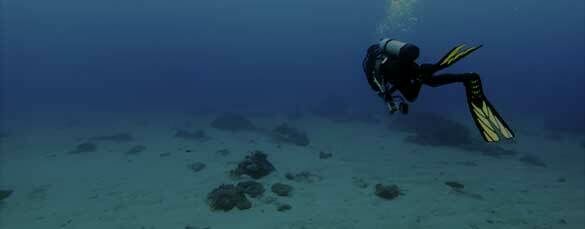Prosthetic valves
[Reviewed 4 December 2022]
Decisions about fitness to dive in individuals with mechanical valves should be made on an individual basis through liaison between the medical referee and either the Committee or a cardiologist with a special interest in diving medicine.
It is assumed at the outset that no other cardiac or non-cardiac contraindication to scuba diving exists. It is important to rule out conditions which may be related to cardiac disease (e.g. arrhythmias or cardiac muscle dysfunction) or cardiac surgery (e.g. post bypass lung or neurological damage).
It is also felt advisable that the individual should also have had the prosthetic valve in place and functioning satisfactorily for a period of time prior to any consideration of fitness to dive. A one year period of satisfactory valve function is thought advisable, particularly since those with significant left ventricular hypertrophy from conditions such as aortic stenosis are known to have a significant one year mortality from sudden (presumed arrhythmic) deaths.
The problem then arises, which prosthetic valves, if any, are acceptable. In considering this, we need to consider the different problems that may be experienced with prosthetic valves.
Potential Risks:
1. Embolisation
(a) Right Heart Valves. Embolisation from right heart prosthetic valves are unlikely to cause incapacity in the water, but could cause chest discomfort similar to chokes – but this seems of very low risk.
(b) Left Heart Valves. Embolisation from left heart valves could cause neurological symptoms and unconsciousness which might cause incapacity underwater or mimic diving related illness after surfacing. The risk of systemic embolisation for the various valve types are approximately 4%/year for mitral prostheses (either mechanical prosthesis in a patient on anticoagulants or bioprosthesis in a patient not on anticoagulants) and approximately 2%/year for aortic prostheses (mechanical prosthesis with anticoagulants or bioprosthesis without anticoagulants). Patients with atrial fibrillation, large left atrium, known left heart thrombus or previous history of systemic embolisation are at higher risk whilst those without these factors are at slightly lower risk.
2. Anticoagulation Mortality 0.2%/year, Morbidity 2%/year from sudden bleeds. (See separate discussion sheet on anticoagulants).
3. Mechanical Failure of Prosthetic Valves
(a) Right Heart Valves. Failure does not usually produce catastrophic problems.
(b) Left Heart Valve. Failure usually produces catastrophic pulmonary oedema/cardiogenic shock with a 30-50% mortality on land. Such an event underwater would be almost certainly fatal and could endanger the buddy. The failure rate varies with different prosthesis but is approximately 1-2 per 1000/year.
4. Degeneration of Bioprostheses. This results in a restenosis or regurgitation but can be assessed at annual review of fitness to dive.
5. Mechanical Haemolysis causes chronic anaemia. Can be excluded by blood test.
6. Pulmonary and Neurological Injury can complicate open heart surgery. There should be no evidence of this.



